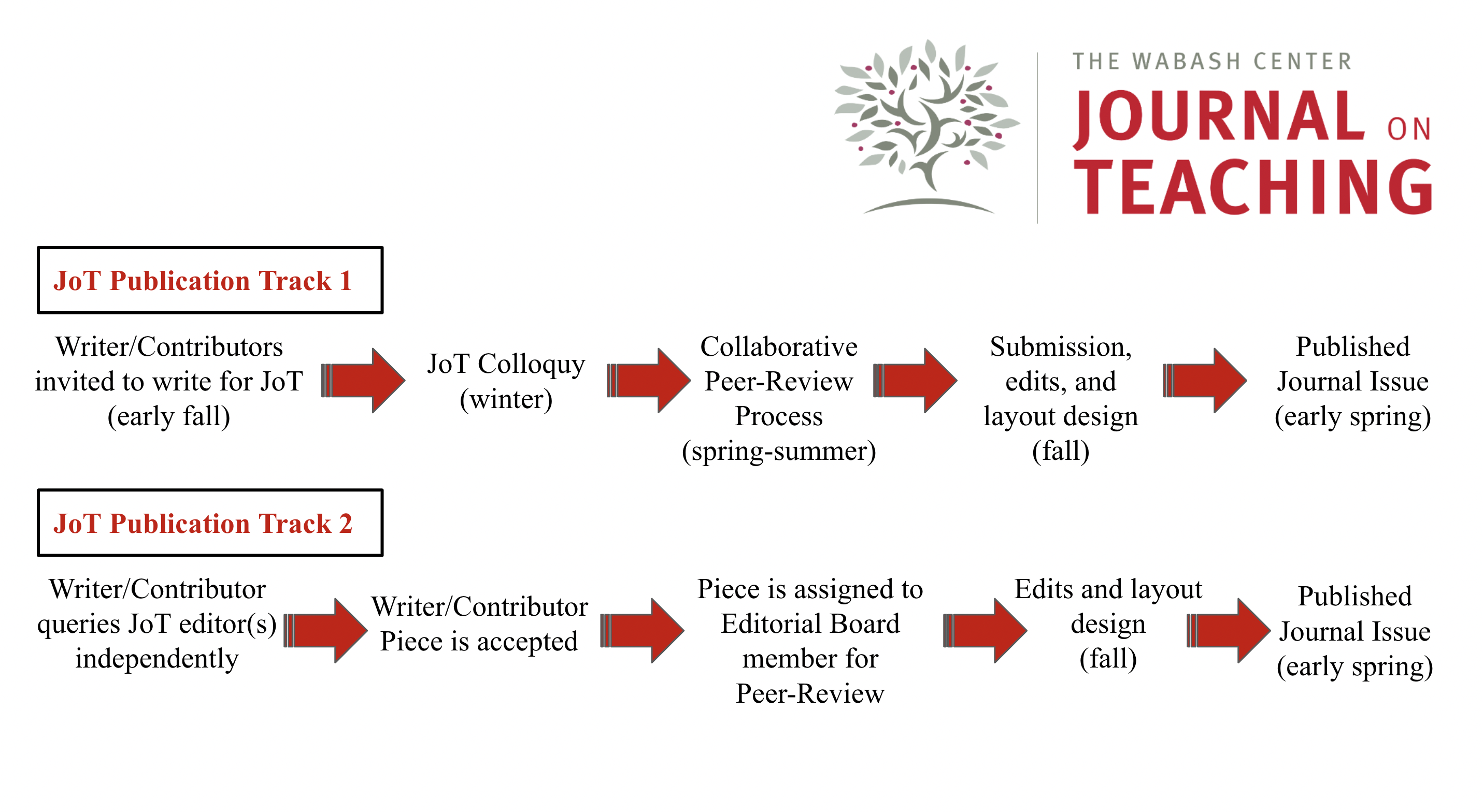Write/Contribute
The Wabash Center Journal on Teaching (JoT) is an annual peer-reviewed journal. Each issue is theme driven and includes various forms of media—such as articles, poetry, visual art, videos of performing arts, and music—in service to critical reflection on teaching. As we aim to expand the traditional boundaries of scholarly writing, we remain focused on the scholarship of teaching in the fields of religious and theological studies, in both undergraduate and graduate educational contexts.
We are committed to publishing creative academic writing in which teacher-practitioners critically reflect on their teaching practice — surfacing their assumptions, analyzing their pedagogical intentions and designs, and diagnosing challenges to student learning.
We do not have an open reading period for submissions. There are two publication tracks.
JoT is modelling a change in scholarship by utilizing a collaborative peer review process. Writers/Contributors are invited by the Wabash Center to participate in our collaborative Peer-Review process, beginning in with a writing colloquy held in the winter. In our efforts to make the journey to publication more collaborative and supportive, following the colloquy each Writer/Contributor is paired with a member of the JoT Editorial Board, or a colleague beyond the Board. These colleagues serve as Conversation Partners. Over the course of six months, these Conversation Parters meet regularly with Writers/Contributors to discuss the piece and offer feedback before our submission deadline each August.
Additionaly, if qualifying scholars have complete drafts of articles they would like to be considered for publication in our forthcoming themed issues, they may send queries to: Donald E. Quist, Editor, quistd@wabash.edu. Please note, peference and priority is given to colloquy participants, and pieces are accepted for track 2 on a rolling basis.
Future Themed Issues:
- 2024 - “Teaching Identity: JoT Vol. 5.”
- 2025 - “Design: Vol. 6.”
The articles most likely to be published will lend themselves to the cohesive theme of the issue and make use of embedded multimodal materials. Articles should be 3,000 – 7,000 words. As different forms of writing call for different lengths, the stated article length is meant to be more of a guide than a mandate.
Articles should present an argument about the conditions or processes of teaching and learning, and demonstrate its relevance to higher education religion or theology classrooms or institutions. Any unsolicited submissions we accept should describe teaching practices that address a particular pedagogical challenge, provide and analyze various forms of evidence gathered from the classroom, and place a pedagogical issue within the wider field of scholarship on teaching. We aim to publish careful self-critical reflections on the various pedagogical choices a teacher has made, as well as evidence of the results. Articles should be about HOW to teach, not simply what to teach.
If our Editors chose to accept the article, the piece will be shared with an Editorial Board member for Peer-Review. Any suggested edits from the Editorial Board member would need to be addressed for the piece to move to publication.

